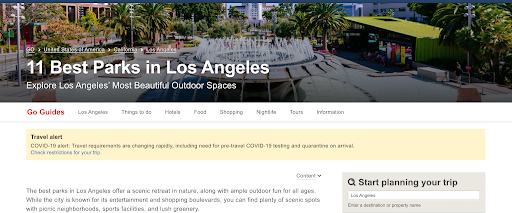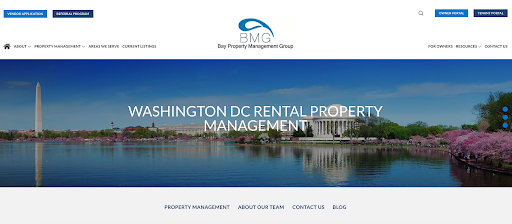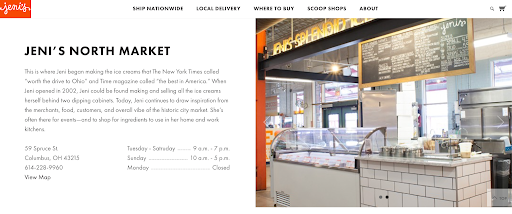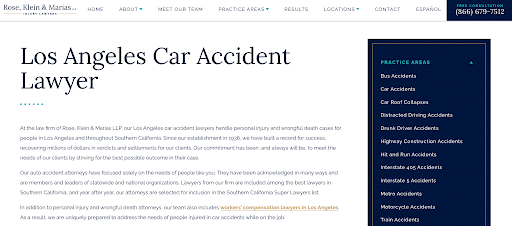To sign up for our daily email newsletter, CLICK HERE
If you have a physical location or serve a lot of customers in a particular area, you need to work on your local search engine optimization (SEO). Local SEO is the process of optimizing your website so your site will rank when people in your area are looking for your products or services. It’s a vital, but often overlooked, SEO skill!
In this article, we’re going to outline how you can use local SEO to get more people to your storefront. Read on to find out more.
Make sure you claim your Google My Business listing
Google My Business is a tool offered by Google to help small business owners manage their listings on Maps and Search. These listings often include details about a business like their opening hours, address, contact information, photos, and more. You can claim yours by heading to Google My Business, typing in your business name, and adding your information.
Google My Business is a great tool for local SEO. It helps users get the information they need at a quick glance, adds a space for people to leave a review, and can help build trust with searchers.
Focus on targeting local keywords with your website copy
You need to ensure that you’re targeting local keywords in your web content. So, head to a keyword research tool like Google Keyword Planner and enter a series of words and phrases related to your business. Include your location, too! Google will then provide you with a range of suggested local keywords based on their competitiveness, or how hard they are to rank for, and their average monthly search volumes.
Just keep in mind that you need to consider search intent when weaving keywords into various parts of your website. For example, if someone has typed a “how” or “why” question into their preferred search engine, they’re likely looking for information that you might be able to provide with a blog post. On the other hand, if they’re using a query that shows they’re looking to make a purchase, you’ll want to point them to a product or service page. So, target relevant keywords on your web pages with this in mind.
Publish content with a local angle
Creating content with a local angle gives search engines a better idea of where you are located. For instance, a hotel could create a listicle of the best restaurants in the area, or a pet store could write about some of their favorite local dog-walking routes.
Let’s look at a few examples of businesses that use local content well, so you can get some inspiration.

Best Nursing Programs has a series of comparison pieces outlining the pros and cons of various nursing programs across the United States. Some of these are optimized for local searches — their guide to the best BSN programs in Texas is a great example. It mentions Texas in its title, introduction, and throughout the piece, so search engines will find it easy to rank this local content for relevant queries.
On your website, consider implementing a similar strategy to reach people in certain cities or states..

Hotels.com, an online hotel reservation company, does something similar in their article on the best parks in Los Angeles.
Hotels.com serves travelers all over the world but, by tailoring their articles to specific cities, they can draw different people to their website and potentially get more bookings. And remember that your local content doesn’t have to be totally specific to what you do, but the topic does need to be something that your ideal customers will want to learn more about.
Try to build some local links
Link building is the process of acquiring hyperlinks from other authoritative websites. When businesses in your niche publish links back to your website, Google takes it as a vote of confidence in your work and will give you a boost on the search engine results pages (SERPs) as a result. Building links on local websites is a great way to show that you’re an active business in your community. Plus, these links will give Google more context as to where you are located!
Consider reaching out to any community-based websites, like relevant nonprofits or your local chamber of commerce, to get a link back to your website. See if there are any local websites relevant to your business or niche — for instance, if you own a restaurant, a food critic website in your city might be willing to put your name on their website in a review, or a local fashion blogger might be willing to link to local hair stylists or retail stores. Additionally, explore opportunities for local citation submission on business directories and local listing websites to enhance your local SEO presence.
Create location pages for your website (and optimize them)
If your business has multiple locations, be sure to dedicate a webpage to each of them. This tactic is very important, as people are more likely to want information about the location they are planning on visiting, rather than your company as a whole. Furthermore, optimized local pages can give search engines like Google more detailed information about the areas you serve, ensuring that the right people are sent your way.
On your location pages, be sure to include general information like your address, contact information, and hours of operation. If different locations have different teams, it could also be helpful to provide some information about your employees. Furthermore, be sure that any reviews or photos you include are specific to whichever location page you are working on.
Let’s look at a few examples of businesses that have excellent location pages to give you some inspiration.

Bay Property Management Group is a real estate management company with multiple locations across the East Coast. And all of their location pages are optimized to help ensure they show up in local search results. For instance, the Bay Property Management Group Washington DC page has different locations (Maryland, Washington DC, Pennsylvania) woven in throughout the page, as those are their most relevant audiences.
Furthermore, they include local pictures and reviews, so website visitors know what they’re getting from this particular location. On your location pages, make sure you regularly mention the area(s) you serve, and include any information that people looking to visit you will need. This will help with boosting your SEO.

Similarly, Jeni’s Splendid Ice Creams has specific pages for each of their locations across the country. This one in particular is for their branch in Columbus, Ohio, and includes their hours of operation, address, photos, and even a bit of history about the location.
When you’re writing the content for your own location pages, consider adding some information about the history of your stores, as it can offer some great opportunities to include local keywords. Like Jeni’s has, you can talk about why you chose your location, what the media has said about it, and more.
Ensure your products and services have their own pages
If you offer different types of products or services, it’s also a good idea to create pages that are dedicated to each and optimized for local search. Not all local search queries will be specific to the business type itself — for example, instead of “bakery in Los Angeles” some people might search for something like “wedding cakes in Los Angeles”.
Let’s look at a few examples of businesses that optimize their product and service pages for local searches, so you can get plenty of inspiration.

Rose, Klein & Marias, an injury attorney law firm, has a service page for individuals looking for information about car accident lawyers in Los Angeles, California.
SummaryPacific Attorney Group is another law firm, that works for accident victims and has a separate page for Sacramento car accident lawyer.
Local service pages are especially important for a business like this, as the law changes from state to state and even city to city. Website visitors will want to make sure that they are receiving the most accurate information. Rose, Klein & Marias weave in local SEO terms like “Los Angeles Car Accident Lawyer” and “Compensation for Car Accident Victims in California” to help attract their target audience. On your website, be sure to specify where you offer your services throughout your copy. This will make sure you reach locals who need your help.

Cupcake Mountain, a bakery in Bozeman, Montana, also has a product page for their wedding cupcakes. Throughout the page, Cupcake Mountain weaves in their location. This gives Google a better idea of where they are located and to who the website should be promoted.
This is especially helpful for searchers looking for wedding cakes and cupcakes — after all, bakeries for such an occasion have to be local. On your website, be sure to include where you are located (and, if applicable, where you’re capable of delivering to) in order to help ensure that your website is shown to the most appropriate people.
Local SEO is vital for businesses that serve a particular area or have a physical location. In this article, we outlined how you can optimize your pages to ensure that they show up on relevant search engine results pages for local questions. We covered the importance of conducting local keyword research, claiming your Google My Business listing, and more. Take a look at your website and see what needs work!
—
Author bio & headshot:
Adam Steele is COO and co-founder of Loganix, which is an SEO fulfillment partner for digital marketing agencies and professionals. The company provides the SEO services that businesses need to grow and achieve their goals. If you enjoyed this article, you can find more SEO guides and templates on the Loganix blog.
